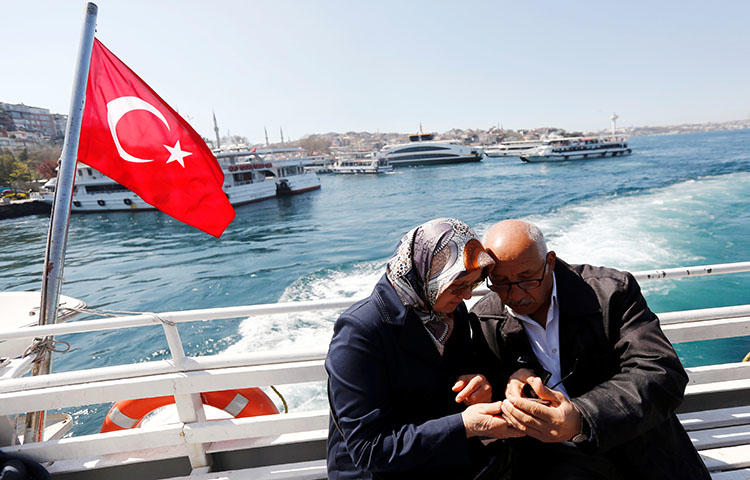Journalists sentenced
An Istanbul court today sentenced at least 22 journalists to prison on terrorism-related charges, according to news reports.
The journalists all denied the charges, the reports stated.
The trial, with a total 29 defendants, made headlines in March 2017, when a court ordered that 21 of them be released pending trial. Twenty of those were re-arrested on the same day, and the judges who released the defendants were later relieved of their jobs. Of the 20 re-arrested, prosecutors charged 12 of them with the more serious offense of plotting the failed coup of July 2015, a crime that could have carried a life sentence without parole. On March 8, all the defendants were acquitted of the coup-related charges.
Journalists detained
Police in the southeastern province of Diyarbakır on March 1 detained Durket Süren, a reporter for the pro-Kurdish Jin News Agency, and questioned her about her professional work and social media posts, her employer stated.
Authorities released Süren on March 5, and banned her from traveling outside the country, according to Jin.
Turkish authorities are investigating Süren, along with 12 others who were arrested in a spate of March 1 raids, on suspicion of “violating the law on financing terrorism,” “making propaganda for a [terrorist] organization,” and “being member of a [terrorist] organization,” the Jin report said.
—
Police on March 7 around 11:20 p.m. took into custody freelance journalist Hayri Tunç at his Istanbul home, and then released him the morning of March 8, citizen journalists Dokuz8Haber tweeted.
The journalist’s lawyer, Gülşah Kaya, said that the police claimed Tunç’s arrest was a mistake and no legal action was taken against her client, according to a tweet from Dokuz8Haber.
Sexual discrimination and assault on Turkish journalists
The Journalists’ Union of Turkey (TGS) on March 5 published a report entitled “Sexual Discrimination and Violence as Experienced by Women Journlalists,” based on surveys with 221 women employed at media outlets in Turkey.
According to their research, 61 percent of the participants said they were subjected to “psychological violence,” 17 percent said they experienced “physical violence,” and 59 percent felt they were subjected to “mobbing” by their male colleagues at work.
